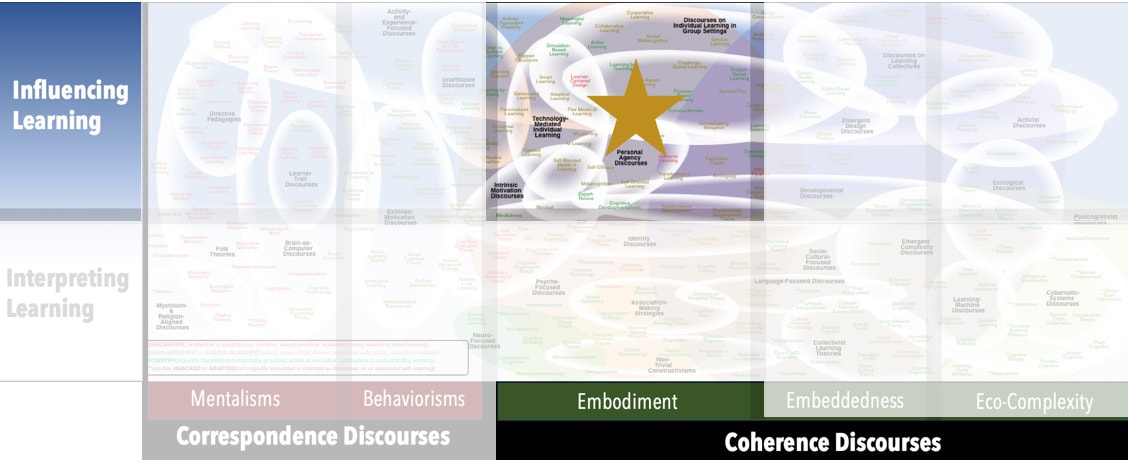AKA
Ubiquitous Learning
Boundary-Crossing Learning
Focus
Anywhere, anytime education, enabled by ubiquitous technologiesPrincipal Metaphors
U-Learning is not explicit about or aligned with any particular theory of learning – and, consequently, vocabulary used to characterize learning is not consistent. Most often, references and are suggestive of Non-Trivial Constructivisms. The following are typical:- Knowledge is … scope of established actions and interpretations
- Knowing is … personal sense derived from individual experience
- Learner is … a user
- Learning is … construing or construction
- Teaching is … supporting sense-making
Originated
2000sSynopsis
U-Learning is an anywhere, anytime model of education – transgressing such traditional educational dyads as school vs. workplace, formal vs. informal, and individual vs. collective. Supported by (but not focused on) mobile and embedded technologies, U-Learning emphasizes real-life experience that are (1) augmented with information adapted to the learner and fitted to the one’s situation and (2) aligned with content, tasks, peer-interactions, and teacher-consultations that are customized to one’s goals, needs, and preferences.Commentary
U-Learning is sometimes confused or conflated with Blended Learning (and, especially, M-Learning). While they share interests in utilization of technologies, they seem to be tethered to quite different educational philosophies. Whereas Blended Learning is most often presented as a sort of “alternative delivery system” (i.e., of traditional content), U-Learning entails an immersion in an adaptive-technologies setting. That is, it compels a rethinking the what’s, when’s, where’s, how’s, and why’s of formal education – in ways that some commentators worry might contribute to erosions of social and cultural cohesion through over-emphasis on individual preferences.Authors and/or Prominent Influences
Gwo-Jen HwangStatus as a Theory of Learning
U-Learning is not a theory of learning.Status as a Theory of Teaching
U-Learning is a theory of influencing learning. It can be construed as a theory of teaching, provided “teaching” is understood broadly in terms of all influences oriented by the intention to elaborate one’s knowledge.Status as a Scientific Theory
At the moment, U-Learning is more an anticipation than the site of focused theorizing and research. It thus falls short of the criteria of scientific theory … but may be indicative of future trends in scientific studies of learning.Map Location

Please cite this article as:
Davis, B., & Francis, K. (2020). “U-Learning” in Discourses on Learning in Education. https://learningdiscourses.com.
⇦ Back to Map
⇦ Back to List
